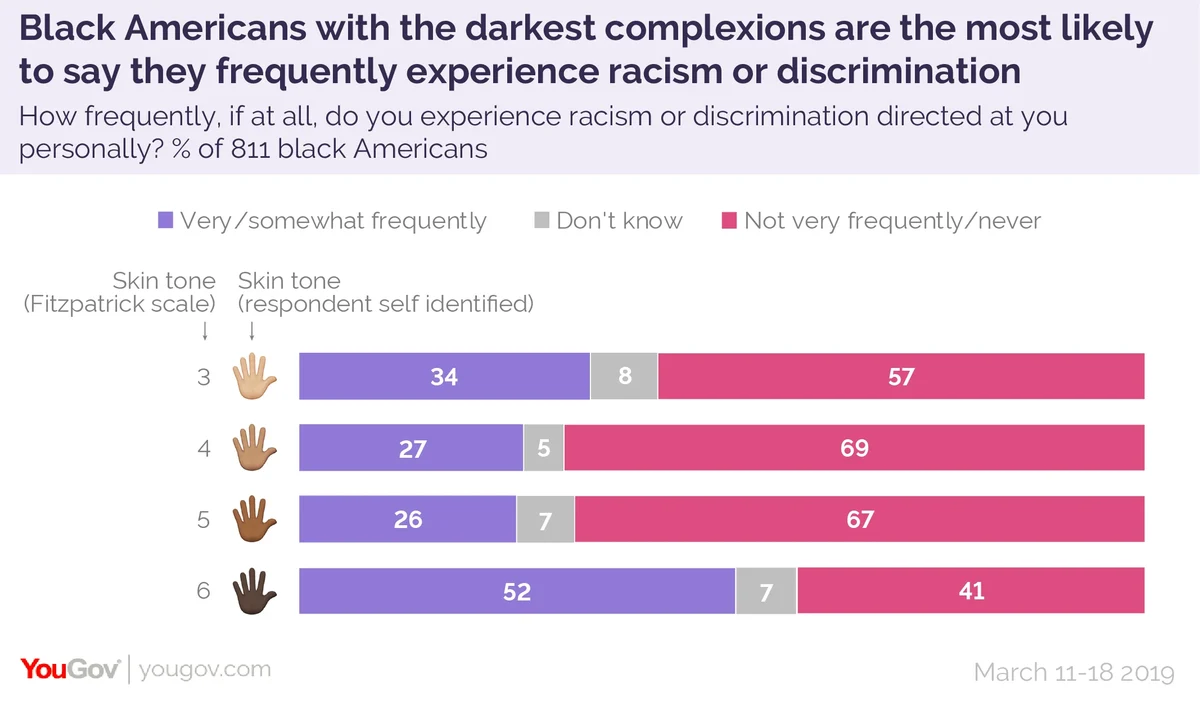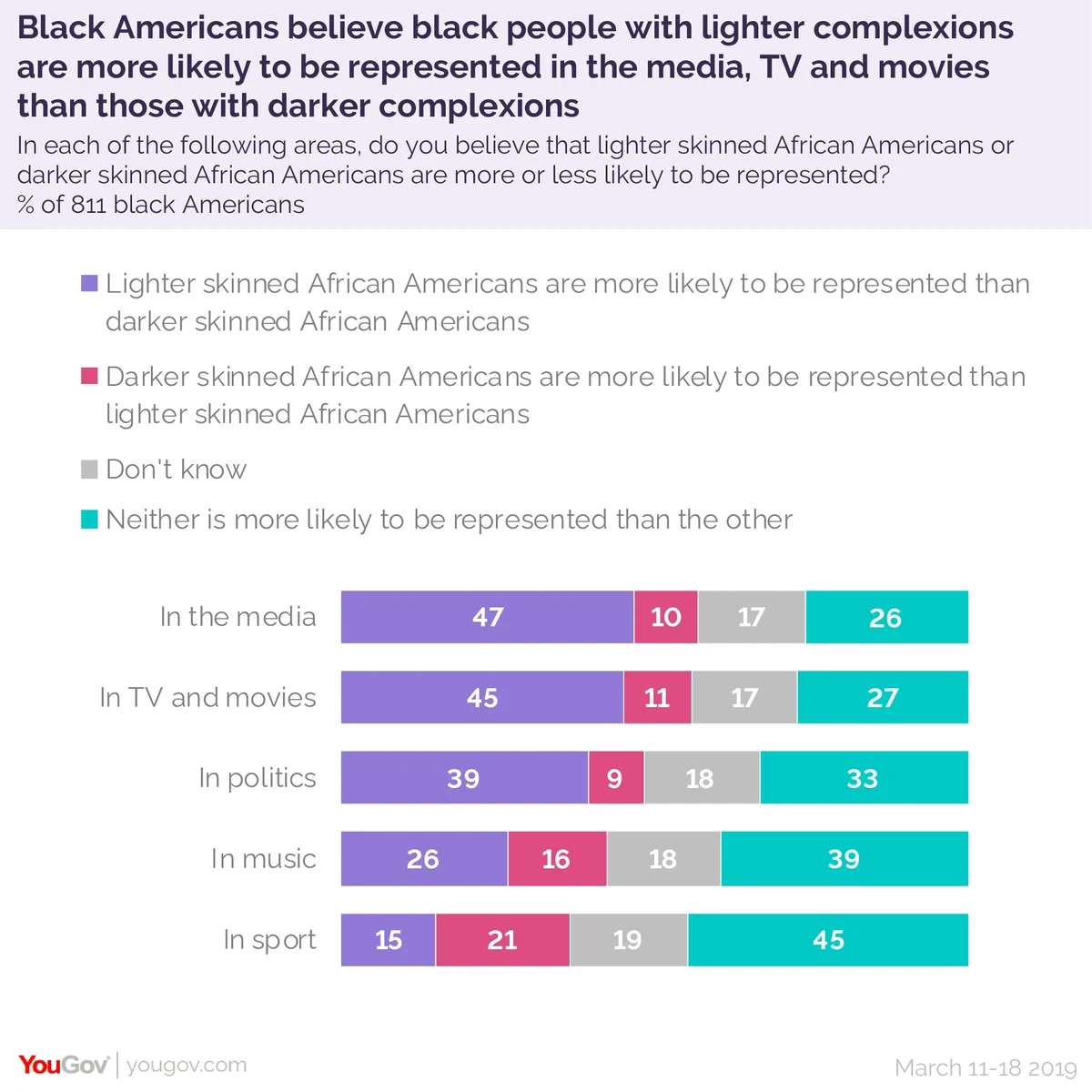Black people also feel that those with the darkest skin tones are also less well-represented in the media and on screen
A new YouGov study of 811 Black Americans finds that those identifying themselves as having the darkest skin type (a 6 on the Fitzpatrick scale, see chart below) are more likely to say that they frequently experience racism.
Half (51%) say that they experience racism “very” or “fairly” frequently, compared to 26-34% of Black Americans who reported having a complexion closest to one of the three less dark categories (3-5 on the Fitzpatrick scale).

That Black Americans with the darkest complexions are more likely to experience racism is widely acknowledged among respondents. Two thirds (64%) of Black Americans believe that darker-skinned Black people are indeed more likely to experience racism or discrimination than those with lighter complexions – only one in five (20%) believe they are neither more nor less likely to experience racism, while 5% think lighter-skinned Black Americans are actually more likely to experience racism.
Black Americans tend to feel that those with darker complexions are less well-represented in the media and on screen, but that sports is much more evenly representative
This discrimination against darker-skinned Black people is also seen by many Black Americans as extending to representation in prominent areas.
For instance, 45% expressed the view that lighter-skinned Black Americans are more likely to be represented in TV and movies than their peers with darker complexions. Only 11% believe the opposite, and a further 27% feel there is no difference in the level of representation. This follows complaints from some about Will Smith potentially being cast to play Richard Williams (father of tennis stars Serena and Venus), who has a much darker complexion, in forthcoming movie “King Richard”.
(On this specific issue the survey also found only 25% of black Americans saying it would be unacceptable for Smith to portray Williams, compared to 48% who say it was acceptable)

Black Americans are similarly likely to see the same problem at play in the broader media, with 47% saying that Black people with darker complexions are less likely to be represented. In politics too, there is a perception that lighter-skinned Black Americans are better represented (39%), although here 33% believe darker and lighter complexioned Black people are equally well represented.
By contrast, in sport and music there are greater perceptions of equality. The highest proportion (45%) believe that both dark and light complexioned Black Americans are equally well-represented. In fact, in sport alone are Black people more likely to believe that those with darker complexions are better represented than vice versa (26% vs 15%).
Likewise, 39% of Black Americans believe there is no difference in levels of representation when it comes to the music industry – 26% believe lighter-skinned Black Americans are better represented, while 16% say the same of Black Americans with darker skin tones.
Photo: Getty






